In each of the 14 countries polled in 2020, majorities credit the United Nations with promoting human rights and peace. However, the organization’s reputation for resolving international problems or caring about ordinary people is not as consistently positive. Only about half overall (median of 51%) say the UN deals effectively with global issues. Doubts are most pronounced in France and Japan, where just 43% in each country have confidence in the UN to deal effectively with problems. Even fewer Italians (40%) trust the UN on this count.
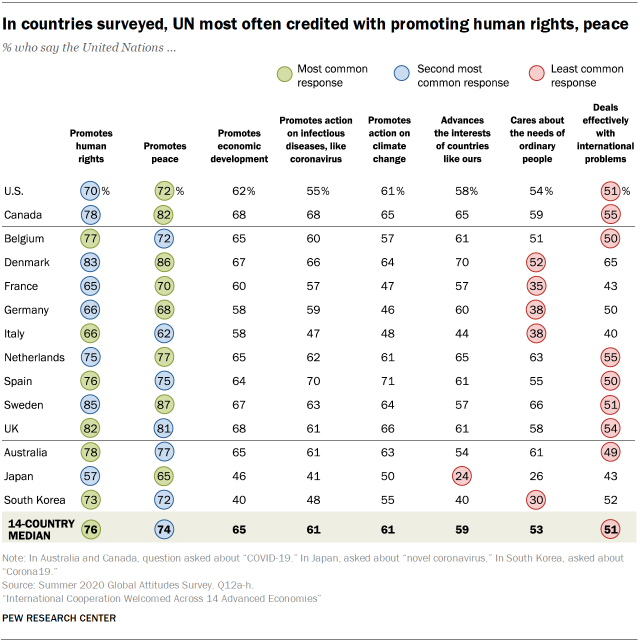
Similarly, there is considerable skepticism that the UN cares about the needs of ordinary people. A median of 53% believe this to be the case, but that share falls as low as 38% in Germany and Italy, and lower still in France (35%), South Korea (30%) and Japan (26%).
In many countries, those with a postsecondary degree or more are more likely than those with less education to say that the UN promotes peace and human rights. For example, in Italy, 75% of people with more education agree the UN promotes peace, compared with 59% of those with less education.
In the U.S., Democrats and Democratic-leaning independents are consistently more favorable than Republicans and Republican-leaning independents about the UN across this entire battery of questions.
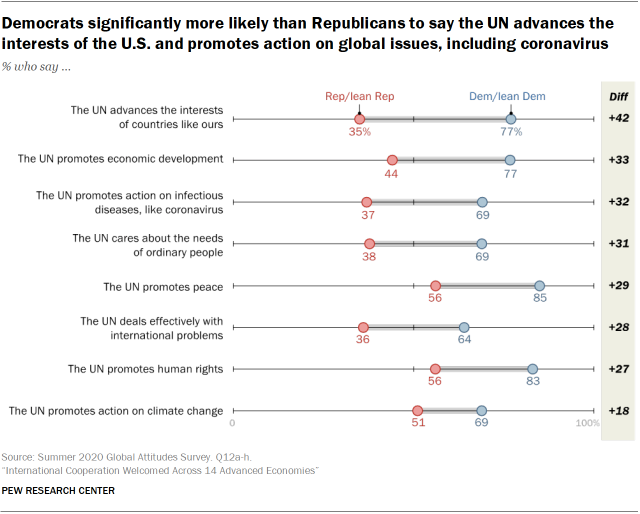
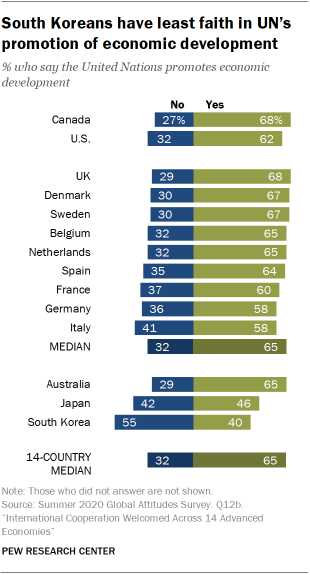
When asked if the UN advances the interests of countries like theirs, roughly three-quarters of Democrats and Democratic leaners (77%) agree, while about a third of Republicans and Republican leaners (35%) say the same. The closest the two parties’ proponents come to agreeing on the UN’s role in the world is on whether the organization promotes action on climate change, but even then, there exists an 18 percentage point difference between Democrats (69%) and Republicans (51%).
Most surveyed have a positive view of the UN’s promotion of economic development, with a 14-country median of 65% agreeing the United Nations does this. In 12 countries, majorities believe the UN promotes economic development. Two-thirds or more in Canada, the UK, Denmark and Sweden express this view.
Only in the East Asian countries surveyed – Japan and South Korea – do publics have less-positive assessments about the UN’s efforts to facilitate economic development. Japan is roughly divided on the topic: 46% agree the UN promotes economic growth while 42% disagree. However, a majority of South Koreans say the UN does not promote economic development.
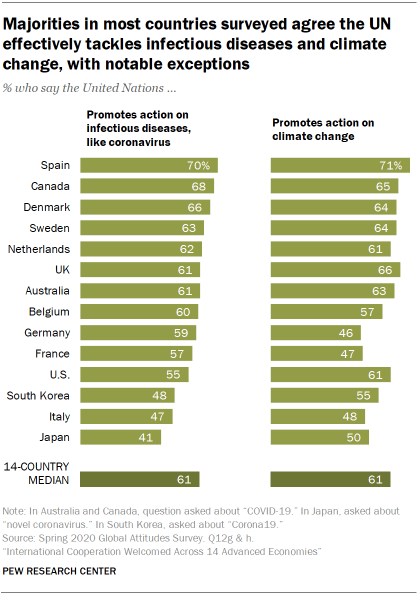
Majorities in most countries surveyed say the UN promotes efforts to fight infectious diseases, like coronavirus, and that it promotes action on climate change, two issues respondents most commonly cited as major threats to their countries. However, there are notable cross-national differences.
Just 41% in Japan and 47% in Italy give the UN good marks on fighting infectious diseases, compared with roughly two-thirds in Spain, Canada and Denmark.
Majorities in 10 countries give the UN positive marks on climate change, but just 46% of Germans, 47% of French, 48% of Italians and half of Japanese express this opinion.
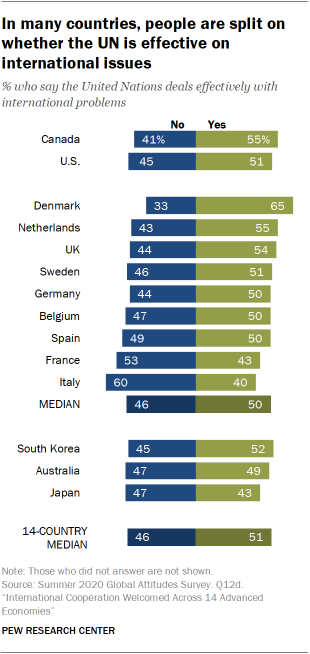
Most people in countries surveyed are divided on whether the UN deals effectively with international problems. Majorities in Denmark (65%), Canada (55%) and the Netherlands (55%) agree the UN deals with international issues effectively.
Beyond these nations, approval of the UN’s handling of international problems hovers closer to the global median of 51%; for example, half of publics in Germany, Belgium and Spain think the UN deals with global issues effectively. Italy is somewhat of an outlier in Europe, with only 40% saying the UN deals effectively with international problems.
Japan remains skeptical of the UN’s international problem-solving. Only 43% of Japanese consider the UN effective in the international arena.
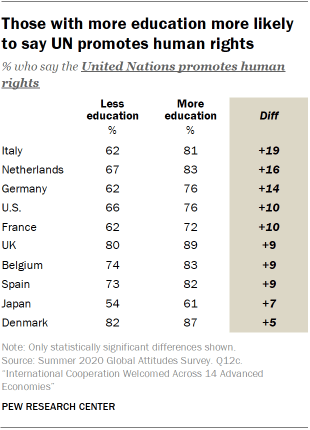
In 10 of the 14 countries surveyed, people with higher levels of education are more likely to believe the UN promotes human rights. This pattern is seen most strongly in Italy, where 81% of those with more education agree with the statement that the UN promotes human rights while 62% of those with less education say the same.
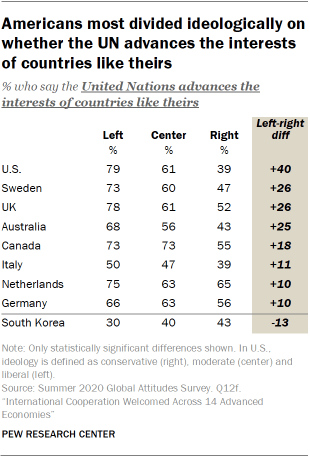
In nine of the countries surveyed, ideology is linked to views about whether the UN advances the interests of countries, with people on the left more likely to think the UN advances the interests of countries like theirs in eight nations.
This difference is most striking in the U.S., where 79% of those on the ideological left say the UN advances national interests like theirs, but only 39% of those on the ideological right say the same.
In contrast, those on South Korea’s ideological right (43%) are more likely than those on the left (30%) to agree that the UN looks out for the interests of countries like theirs.




